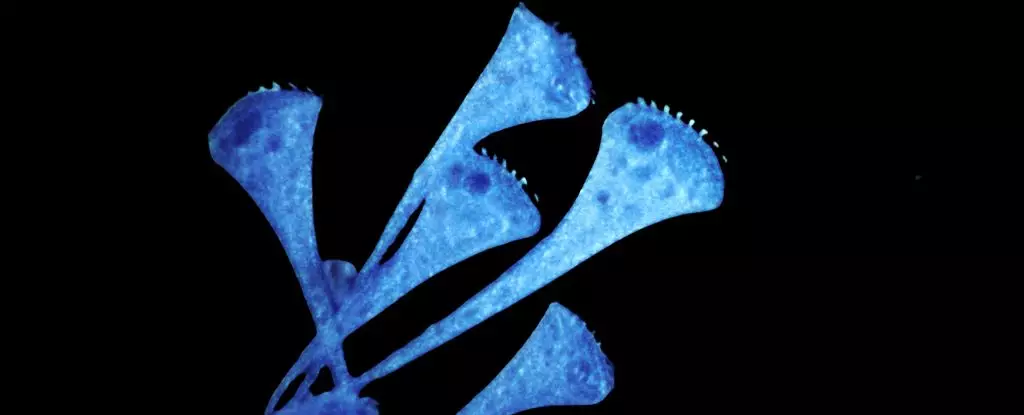Recent research has unveiled an astonishing capability inherent in individual cells: the ability to undergo a form of learning typically associated with more complex organisms. This groundbreaking notion challenges long-held beliefs about the limits of learning and memory to beings possessing nervous systems. Scientists, including Jeremy Gunawardena from Harvard Medical School, express both excitement and curiosity over this phenomenon, particularly the cellular learning process known as habituation. This article explores the implications of these findings and their potential influence on biology and medicine.
Understanding Habituation: A Primer on Cellular Learning
Habituation is a well-documented phenomenon observed in various organisms, where the response to a repeated non-rewarding stimulus diminishes over time. This concept explains, for instance, how animals adapt to the presence of humans or become desensitized to persistent odors. The intricate mechanism underlying this process has predominantly been studied in the context of more complex neurological systems. However, recent explorations indicate that even cells devoid of a nervous system can exhibit behavioral adaptations akin to this form of learning.
The research team led by Max Planck Institute neurobiologist Lina Eckert utilized advanced computer modeling techniques to investigate molecular networks within both mammalian cells and simpler unicellular organisms such as ciliates. Their work revealed that certain molecular networks possess a dual-response system, characterized by one response that wanes more slowly than another. This capacity for varied responses to stimuli is pivotal in defining habituation at a cellular level, allowing for immediate reactions to be subdued through prolonged exposure to a stimulus.
Molecular Mechanisms Behind Cellular Memory
The core finding of Eckert and her colleagues reflects the intricate machinery that enables cells to “remember” past stimuli through differential responses. According to Rosa Martinez from the Centre for Genomic Regulation, this ability may be interpreted as a primitive form of cellular memory, which allows cells to adjust their reactions based on prior experiences. Importantly, as the slow response to a stimulus diminishes, the cell reverts to its original responsiveness, suggesting a complex interplay between memory and immediate reaction.
While these findings remain to be corroborated in living cells, the groundwork laid by this research could yield transformative possibilities. For example, if the identified molecular networks are eventually confirmed to function as a form of memory, the implications for biomedical sciences could be vast. Specifically, there is potential to rethink how we approach treatments for specific conditions, such as cancer, by preventing the immune system from growing complacent or “habituated” to tumor cells.
The implications of these discoveries extend far beyond the realm of basic biology. The ability to manipulate how cells perceive their environments could lead to revolutionary advancements in immunotherapy. Gunawardena aptly likens the challenge to unraveling “delusions” within immune cells. By deciphering the encoding mechanisms that lead to misguided perceptions of tumor cells, researchers may develop strategies to reignite the immune response against malignancies. This perspective envisions an exciting frontier in both cellular biology and cancer treatment.
Moreover, these revelations contribute to ongoing debates in the scientific community regarding the definition of learning and intelligence. Historically, the concept of learning has been predominantly linked to the presence of a central nervous system. However, the assertion that even single-celled organisms display learning capacity reshapes the narrative, highlighting a broader and perhaps more inclusive understanding of cognitive processes that might be at play in nature.
The findings surrounding cellular habituation open an array of questions for further investigation. As Eckert’s team acknowledges, the intersection of ideology and scientific inquiry has shaped historical perspectives on cognitive capacities within non-neuronal entities. Moving forward, the field is poised for a renaissance, where the boundaries of what constitutes learning, memory, and intelligence may need reevaluation.
Ultimately, this emerging understanding of cellular learning not only enhances our comprehension of biological processes but potentially paves the way for novel therapeutic strategies. The journey of exploring how cells adapt and remember promises to be as enlightening as it is transformative, challenging preconceived notions and inviting fresh perspectives into the remarkable world of life at the cellular level.


Leave a Reply